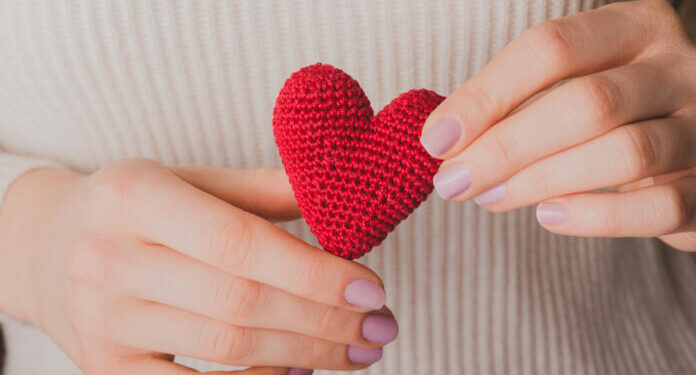P. Stradins Clinical University Hospital (PSKUS) has joined the Nordic-Baltic organ exchange platform “Scandiatransplant” opens up the opportunity to receive organs in rare and emergency situations more quickly, LETA was told by the National Transplantation Coordination Service (NTKD).
This service works on the creation of a transplantation “waiting list”, organ donor search, promotion of organ transplantation in society, as well as the creation of a register of donors, recipients and transplanted patients.
The NTKD Director Egija Lapiņa, her assistant for clinical affairs Aleksandrs Maļcevs and PSKUS Intensive Therapy and Resuscitation Unit Dr. Eva Šteina explained in a joint statement to LETA that the decision to join Scandiatransplant will open up opportunities for organ transplantation through smaller surgeries, such as lung transplantation, which are not performed in Latvia, as well as transplantation surgeries for children performed in other countries.
The more urgent or critical the patient’s state of health, the more priority the transplant will be for a particular patient. Children’s needs will also be a priority. The platform will also be particularly important for highly immunised patients, who find it equally impossible to find the appropriate organ in their own country, providing an opportunity to receive a compatible organ from another country, the specialists explain.
Joining this network means not only receiving organs, but also making better use of the donor organs available in each member state, experts stress.
When in the Scandiatransplant group, the primary organs remain in the donor country, but if another country announces that they have a recipient in critical condition or the recipient is a child and all immunological criteria are compatible, then priority is given to transferring the organ to a transplant team from another country.
PSKUS reports that such a principle is respected in all countries and the volume is also assessed in order to ensure the fair circulation of organs between transplantation centres.
Specialists note that in Latvia, the immunological diversity of the population is very limited, so it is almost impossible to find a compatible organ for highly sensitized patients. Since the platform’s member states cover a population of about 30 million, there is a greater likelihood of matching organs for highly sensitized patients.
Experts point out that the compatibility of each organ will be assessed according to the criteria of immunological cooperation – blood group, antibodies specific to each person, size of the recipient and the donor, as well as the general state of health or age of the recipient.
At the moment when a potential organ donor would be identified in a hospital, for example, after brain death, the doctor would assess his or her state of health, determining the suitability of the organs and the risk of infections. Relevant information is then placed in the Scandiatransplant data system.
If Latvia were a member of this platform, its patients would be on this common list, and if there was no matching donor available in Latvia, the patient could receive an organ from another member state.
The hospital reports that the platform also operates an organ return system. This means that when a Latvian recipient receives an organ from another member state in urgent cases, it is necessary to ensure the equivalent return of the organ in that country and vice versa – any member state returns the equivalent organ if the Latvian organ travels to another country.
Likewise, as the specialists note, a big advantage is the traffic between Latvia and the member states. Most of the organs can be moved with the help of commercial flights, which are well developed for Latvia with other member states. In the case of organs such as hearts, the transfer time is very limited, so in such cases, cooperation could take place with nearby countries – Estonia and Finland.
Alongside the accession platform, Latvian specialists will be able to acquire organ transplantation-related skills in other Scandinavian countries in order to align themselves with the quality standards in this sector that are provided in Europe’s most developed countries, PSKUS representatives said. In the long run, it could also increase the number of local transplants in Latvia by introducing the latest methods and guidelines.
At the same time, the Member States participating in the platform will jointly analyse the results, also assessing the potential for improvement and the quality of the national examinations.
PSKUS is currently in the final stages to join the Nordic-Baltic organ exchange platform Scandiatransplant.
Scandiatransplant is a Nordic organ donor exchange network that unites Denmark, Iceland, Finland, Norway, Sweden, Estonia and soon Latvia, ensuring an operative and transparent distribution of donor organs between countries.
Also read: VIDEO | Plane flips upside down on landing at Toronto airport, all passengers and crew survive
Follow us on Facebook and X!
Source link : http://www.bing.com/news/apiclick.aspx?ref=FexRss&aid=&tid=67b4781153d44332a739cb3adda215b3&url=https%3A%2F%2Fbnn-news.com%2Fnew-opportunities-for-transplantation-open-up-as-latvia-joins-scandiatransplant-network-265074&c=16530419312738721252&mkt=de-de
Author :
Publish date : 2025-02-18 01:53:00
Copyright for syndicated content belongs to the linked Source.



